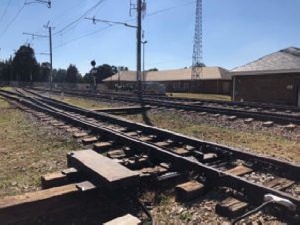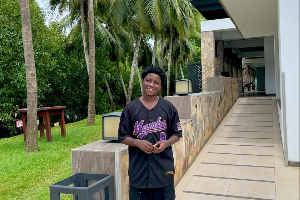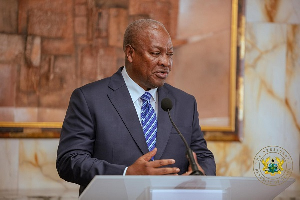Ghana and Burkina Faso are in advanced talks to select an investor for the construction of the approximately 1,200km railway project to link the two countries to promote intra-regional transit trade, Deputy Minister for Transport, Titus Glover, has said.
An international competitive tender for potential contractors to submit bids has been opened for the project, which is expected to be undertaken through a Public Private Partnership (PPP) arrangement.
Mr. Glover said this at a freight negotiation conference held in Accra which brought together stakeholders in the commodities, shipping and insurance industries.
He explained that the proposed Ghana-Burkina Faso rail network is expected to pass through the eastern corridor of Ghana, starting from the Tema Port, through Akosombo, Ho, Hohoe, Yendi, Tamale and to Paga.
The line will continue in Burkina Faso from Dakola going through Po along the national highway number 5, integrating the pole of growth of Bagre and ends at Ouagadougou.
The intention, according to Mr. Glover, is to reduce the time and resources people spend transacting business between Ghana and Burkina Faso.
Ghana and Burkina Faso share a continuous international land border of about 549 kilometers. The two countries, members of the Economic Community of West African States (ECOWAS), are said to represent one of the most dynamic economies of the sub-region, with an estimated growth rate of 8.4% for Burkina and 8.7% for Ghana in 2017.
“Government is also rigorously investing in railway infrastructure to ensure the movement of cargo to and from the ports as part of the efforts to deepen intermodal transport to facilitate trade,” Mr. Glover said.
He indicated that the construction of the 844kilometer Tema-Akosombo railway line has already started and it is expected to be completed in 2020.
“Government will continue to open the country for trade and introduce policy interventions to position the country’s ports as the most cost effective and time-efficient in the sub-region to support the growth of businesses.
This requires the support and collaboration of all stakeholders in the maritime trade, especially Shipping Lines to make our ports more competitive,” he said.
Export Trade figures
Total laden containers for imports and exports for half-year 2018 stood at 328,801 Twenty Foot Equivalent Units (TEUs), which is a 13.5 percent growth.
Transit volumes to the three landlocked countries of Burkina Faso, Niger and Mali amounted to 497,574 metric tonnes—made up of 449,710 metric tonnes of imports and 47,864 metric tonnes of exports.
Major transit trade commodities included processed foods/beverages, iron, steel, plates and pipes.
Business News of Friday, 12 October 2018
Source: thebftonline.com













